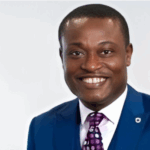
They say he is too slow. Others whisper he is too emotional. Some sneer that he is loud and proud. But let us be honest with ourselves. When you decide to fight corruption in Ghana, you are not just chasing after bad accounting entries; you are taking on a living, breathing monster that fights back with stolen wealth, well-paid lawyers, and a whole chorus of defenders dressed up in respectability.
The Office of the Special Prosecutor was never meant to be a ceremonial office. It was born from frustration. Frustration at committees that wrote polished reports only to have them gather dust. Frustration at politicians who dipped their hands into public coffers and still walked the streets with smiles. Frustration at a society that sometimes claps for thieves, so long as the thief is “our thief.” The OSP was meant to be different, a small light shining in a very dark room.
But the light flickers. Some citizens complain it is too dim, others that it glares too brightly. People say the Special Prosecutor is weak, or arrogant, or both. Yet we forget he is working in a swamp where the rules are written to protect the very rot he is trying to uproot. Expecting easy victories here is like expecting a farmer to reap in harmattan. Still, waiting forever is also no answer. A nation cannot survive on promises alone.
Look at the battles already on his table. Former Finance Minister Ken Ofori-Atta, accused of abusing public office through shady contracts and questionable payments. When the OSP summoned him, he claimed medical grounds and stayed abroad. The Office declared him wanted. He rushed to court to block the arrest. The case drags on. This is how corruption fights back, not with fists, but with paperwork, delay tactics, and expensive counsel.
Or take the case against Mustapha Hamid and others at the National Petroleum Authority. The charges of extortion, money laundering, and abuse of office sound like lines from a crime thriller, but they are our reality. Then there is the Tema Port rice scandal, the GES posting scam where young graduates were robbed of their future before it began, the payroll ghost names in Tamale, and the infamous galamsey cases. Each story carries faces: a teacher denied her letter, a parent forced to pay bribes for what should be free, a community losing its river to mining waste.
These cases remind us that corruption is not abstract. It is lived. It is why the young man with his degree is jobless. It is why a hospital has no drugs. It is why a classroom leaks in the rain.
Not every fight has been won. In Juaben, a municipal nominee accused of demanding bribes from assembly members was acquitted. The OSP has appealed. That is the hard road of justice. You win some, you lose some, but you do not stop. The danger is when people confuse a temporary loss with permanent failure.
Critics point to tone. Yes, sometimes the Special Prosecutor sounds angry, even wounded, in his statements. He responds to letters with fire and does not hide his frustration. But maybe we should ask ourselves: what do we expect? Should he sound calm when billions are stolen, when young graduates buy fake appointment letters because someone turned corruption into a side business? Still, anger is not enough. A scalpel, not a hammer, wins the surgery. Every case should speak louder than every adjective.
Others say he craves the camera. That he loves to announce, loves to explain, loves to be seen. But in Ghana, silence is dangerous. When state agencies go quiet, cases are buried. A prosecutor who hides in his office is as good as no prosecutor at all. The problem is not that he speaks. The problem is what he says. He must speak in facts, in timelines, in recoveries—showing us not just who is in court, but how much money has been saved or returned. Then his loudness becomes proof, not theatre.
And yes, speed matters. Justice delayed becomes justice mocked. The OSP must prioritize. Choose the cases that shake the foundations of state capture, and push them with urgency. Let us know the road map. Citizens deserve updates. Each adjournment, each unexplained delay, chips away at hope.
The OSP must also avoid becoming a lone ranger. One tree cannot make a forest. He must build alliances with journalists who still chase truth, with civic groups who still dare to bark, with whistleblowers who risk everything to speak. Corruption is too big for one man’s shoulders. It must be a shared fight.
The truth is, we need him. We need him sharper, calmer, and faster. But we also need to understand the war he is fighting. Corruption is not just a headline. It is the reason a child studies under a lantern. It is the reason a patient dies waiting for oxygen. It is the reason so many young people believe the only job worth chasing is a visa.
The OSP’s work will always be messy, always political, and always doubted. That is the price of daring to chase thieves in high office. But if he can balance anger with precision, visibility with results, and speed with thoroughness, then the labels slow, emotional, loud, proud will fade. And one word will remain. Effective.
And that is all that matters.